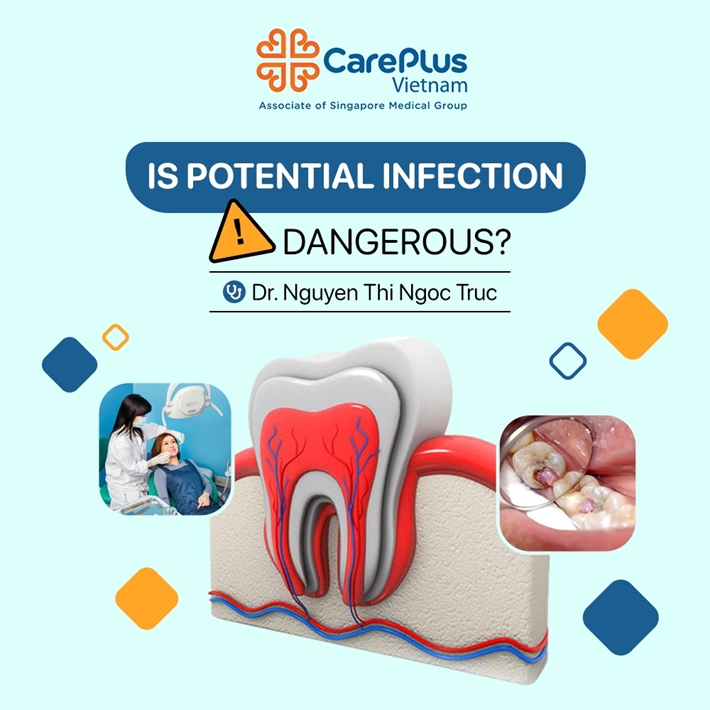Is pulpitis dangerous?
Pulpitis is a dangerous oral disease that greatly affects the oral health and aesthetics of the mouth. If pulpitis is not detected and treated in time, it will cause dangerous complications.

8/22/2022 8:53:36 AM
1. What is pulpitis?
Tooth pulp is a special organization consisting of blood vessels, nerves... located in a cavity between the dentin (pulp cavity). The pulp organizations communicate with the body through very small holes in the apex of the tooth. Pulpitis is inflammation of the pulp of the tooth and the tissues surrounding the root of the tooth. Pulpitis is a protective response of the tooth pulp to pathogens, the disease can progress through many stages, many different types of damage: reversible pulpitis (pre-pulpitis), inflammation acute pulpitis, chronic pulpitis.
2. Causes of tooth pulp inflammation
Pulpitis usually starts from untreated tooth decay, bacteria that exist in the mouth, penetrate the tooth pulp mainly through cavities and cause disease. In addition, there are other causes such as broken teeth, chipped teeth, trauma to cut the blood vessels supplying the tooth pulp, excessive tooth wear, pulpitis due to inflammation around the teeth.
The most common causative agent of dental pulpitis is bacteria. They exist in the mouth, entering the pulp mainly through cavities and apex. Besides, trauma can also cause inflammation.
3. Is pulpitis dangerous?
Inflamed pulp will become congested. Untreated pulp dead teeth lead to inflammation around the apex of the root, abscesses around the apex, and possibly complications such as periodontitis, blood infection, and bone inflammation, which are very harmful to health.
When teeth have symptoms such as: large cavities, teeth are traumatized with signs of natural pain (the pain increases at night), teeth are abnormally discolored... must go to the doctor immediately to be examined and treated because the pulp may be inflamed or necrotic.
Above are some of the dangerous complications of pulpitis. To prevent this from happening, you should seek medical attention and treat myelitis when it is in its early stages.
When pulpitis is detected early, it can be easily treated. If not treated early, the disease progresses seriously, the treatment will be difficult, complicated, expensive, with less satisfactory results.
Book an appointment with a dentist here: https://www.careplusvn.com/en/khoa-rang-ham-mat